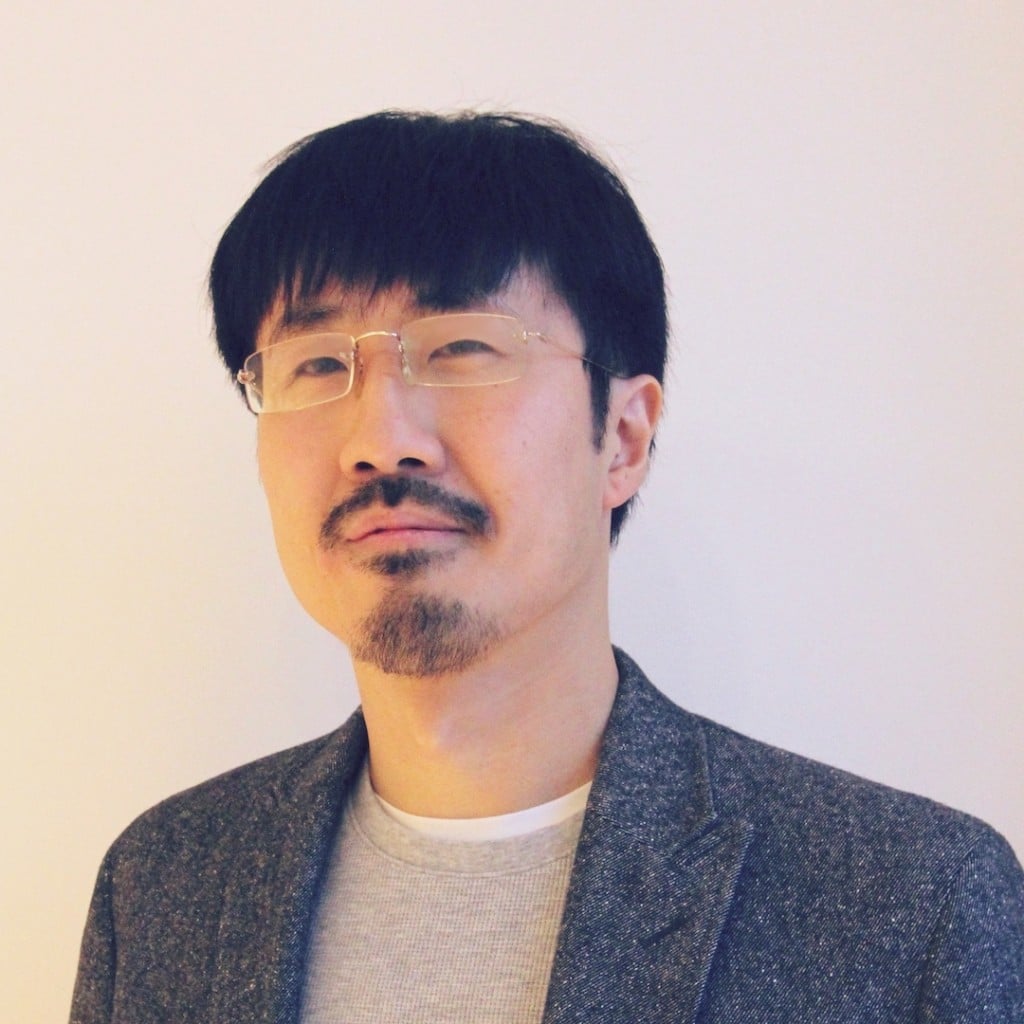
The Swedish way in the corona crisis: reflections from an expatriate
The Swedish way in the corona crisis: reflections from an expatriate
By Anirban Dey
Another day in paradise
A tropical cyclone ripped through two Indian states by the Bay of Bengal coastline in the third week of May with wind speed upwards of 185 kilometers per hour, devastating millions of lives – people were rendered homeless over the span of a few hours – their livelihoods, homes, access to basic amenities, securities and dreams all blown away to smithereens by the unforgiving gales. Compounded by the effects of the corona virus, this double whammy dealt a catastrophic blow to the states, both economically and ecologically. The implementation of social lockdowns in India to prevent the spread of COVID-19, which was done in three phases, also left a lot to be desired. Infrastructural lapses in healthcare, a flagrant disregard of reason and commonsense, and ill-conceived policies smacking of apathy and benign negligence made a humanitarian crisis of a virus contagion. Sitting a few thousand miles away, as I type this article, under the comforting, warm glow of the nightlamp in our spiffy Sveavägen apartment, I am more aware of the contrast in our situations like never before. I step outside on the balcony to get some air. An overbearing glumness hangs heavy on my mind. Not that me being there would have made much of a difference, but I would certainly feel more at ease, if I had been with my family during this time. This sentiment is echoed by other members of the Stockholm Dual Career Network (SDCN), as I find out. We are all away from our extended families, and, in addition to finding out ways to deal with this crisis ourselves, we are suddenly faced with concerns about the well-being of our family members, whom we have no way of reaching right now.
“At first I was really worried about the Swedish strategy; coming from one of the most affected cities in Italy I thought it would have not been enough to curb the spread of the virus”
Laura Brembilla, SDCN member


“At first I was really worried about the Swedish strategy; coming from one of the most affected cities in Italy I thought it would have not been enough to curb the spread of the virus”
Laura Brembilla, SDCN member
Laura Brembilla, who comes from Bergamo, the most-affected province in Italy, says that apart from fears of potentially losing her job in Stockholm, she is beset by concerns about the health of her parents who continue to live there. Sheetal Palav, from Mumbai (India), is also worried about her parents who live by themselves, and the detection of a virus-infected person in the same apartment complex that they are in, doesn’t really help things. Samantha Goos, who recently shifted to Stockholm, sums up our concerns – ‘The health of my family, back home in the Netherlands, and the impact of COVID-19 on the job market in Sweden. When your parents and loved ones are in another country, and you don’t know when you’ll be able to see them again, it can be quite stressful.’
Individual responsibility: the Swedish approach
We’ve been co-habiting with the corona virus for more than four months now – a pandemic which has plunged economies into depression and not only changed the way people interact socially, but the very way we lead our lives. For those of us staying in Stockholm, words such as smitta (infection), flockimmunitet (herd immunity), social distansering (social distancing), tvåmetersregel (two-metre rule) and other virus-related terminology have suddenly popped up in our everyday lives. And then very quickly, followed the flood of opinions and arguments that raged all over social media about the way the Swedish government chose to deal with the coronakrisen (corona crisis). The much-debated Swedish approach to the crisis, primarily hinged on two criticisms – a) the government has prioritized economy over health, and not issued a blanket lockdown order which in turn has consistently led to large gatherings in public spaces; b) the government has not done enough to protect the elderly and socio-economically vulnerable groups.
One has to concede that there is merit in some of the arguments. The disproportionate number of people getting infected in lower income, immigrant communities in suburbs such as Rinkeby-Kista and Spånga-Tensta suggest lapses in communication of information. The Swedish government responded to this development swiftly – communication was ramped up and leaflets in multiple languages were put up in neighborhoods to spread awareness. The spread of infection and steep mortality rates among elderly people housed in care homes across Sweden has also raised concerns. After reports emerged of negligence and patients not getting access to oxygen treatment in care homes, the Swedish Healthcare Inspectorate (IVO) took cognizance of the deficiencies and launched a thorough investigation of the situation.
The human cost of COVID-19 aside, Sweden’s refusal to implement a total lockdown unlike its Scandinavian neighbors and many countries worldwide, has attracted brickbats as well. The Swedish society’s usual preference for a certain degree of social distancing in regular life, and a healthy population which is relatively low in number, are factors that have contributed to the ease of this decision. But as an expatriate myself, I find it interesting (yet entirely understandable) that most of the concerns seem to come from within the international community. Laura’s initial reaction was skeptical as well – ‘At first I was really worried about the Swedish strategy; coming from one of the most affected cities in Italy I thought it would have not been enough to curb the spread of the virus since they imposed largely voluntary measures without opting for a lockdown.’

“I feel like the virus was dealt with in the quintessential lagom Swedish way.”
Peng Wu, SDCN member
An overwhelming majority of the Swedish population (across all age groups), on the other hand, display a steadfast belief in governmental agencies. This, I understand, is a relationship of reciprocal trust fostered between the regering (government) and the folket (people), a collaboration that is woven into the socio-cultural fabric of the Swedish society. This is what has enabled the government to make a distinction between föreskrifter (rules, binding in nature) and allmänna råd (common advice, entirely voluntary), and issue recommendations instead of heavy-handed strictures. Swedes have, of their own accord, celebrated Easter at home, reduced regular outdoor social activities (well, mostly!), been mindful of maintaining the two-meter rule in public places, dispensed with their summer vacation plans, while passengers using public transport have trickled down to an ebb with most people working from home. For those of us who come from countries where the government and the people don’t exactly share this symbiotic equation are naturally perplexed by the Swedish approach. Peng Wu, an SDCN member from New York City humorously quips, ‘I feel like the virus was dealt with in the quintessential lagom Swedish way.’
“I feel much more secure and at ease. I can trust the people around me (with respect to whoever I have come in contact with) taking precautions in their own capacity to ensure social distancing.”
Sheetal Palav, SDCN member


“I feel much more secure and at ease. I can trust the people around me (with respect to whoever I have come in contact with) taking precautions in their own capacity to ensure social distancing.”
Sheetal Palav, SDCN member
Life in the times of corona
Compared to how the corona crisis has been tackled in a lot of countries around the world, most SDCN members including myself feel relatively secure in Sweden. Sure, we could go on debating endlessly about the effectiveness of the Swedish approach, but that will be determined in the months ahead. As of now, we are thankful for Sweden’s robust commitment to democratic values which gives us the freedom to voice our opinions freely and the constitutional primacy of the freedom of movement which allows us to go about our lives (albeit with a few commonsensical riders). The fact that our access to essential commodities has not been curtailed and we can still enjoy eating out or going for a walk in an adjacent park, is rather liberating. Sheetal agrees – ‘Yes, I feel much more secure and at ease. I can trust the people around me (with respect to whoever I have come in contact with) taking precautions in their own capacity to ensure social distancing.’ Peng worries about the situation in his hometown New York City, but is happy with the safety that Sweden provides his family – ‘I feel Sweden is generally safe for me and my family, but it is very much because of our privileged position. We live outside of the city center in a more sparsely populated neighborhood. My wife has a job that she can quite easily do from home and a supportive company that enables her to do that. We have a car so we can avoid public transit if necessary. Our Internet is quite good so we can keep ourselves connected to family and friends as much as we need, etc. A lot of this would not be the case if we lived back in NYC.’ It’s no wonder that an internal survey conducted by SDCN found that 76% of the members plan to continue living in Sweden in the near future.

“For me, in marketing and copywriting, the effects are very noticeable – as a lot of companies have decided to temporarily halt the acquisition of new talent”
Samantha Goos, SDCN member
Rolling with the punches
It’s certainly not all hunky-dory though. If job-hunting in Sweden was difficult previously, it has now escalated to a whole new level in the wake of the corona virus outbreak. The internal survey found that 51% of SDCN members are concerned about not finding a job in these times of restricted networking opportunities, with companies freezing recruitment processes and laying off employees by the scores. Laura says – ‘I think I lost some opportunities to go to events and network, even if there are a lot of opportunities online, in my opinion it cannot be done as effectively as before.’ Peng agrees – ‘I had work as a freelance consultant, but work has completely dried up. I also find it extremely difficult to network for work in the present situation, as most people in my field are working from home (if they do work) and it is not very easy to make personal connections via telecommunications versus face-to-face meetings.’ Interviews have been postponed indefinitely at the last minute and job openings cancelled. Samantha, who works as a freelance copywriter, has had applications retracted due to financial uncertainties. She says – ‘For me, in marketing and copywriting, the effects are very noticeable – as a lot of companies have decided to temporarily halt the acquisition of new talent. I had various active job applications at the start of the outbreak, but all got cancelled/retracted as the scale of the crisis became apparent. So, to summarise, yes, this crisis does impose restrictions on those expats looking for the right opportunity in Sweden.’ Sheetal, who has a similar background, concurs – ‘I have a marketing background and in these tough times, there’s not much of brand marketing which results in lack of opportunities.’
68% of SDCN members have considered a career reboot or pursuing educational opportunities in Stockholm in order to upskill themselves during this time, so that they are better equipped to make use of available opportunities or resume their job search when things settle down again. Peng, who has a postgraduate degree from KTH, is looking to broaden his options as well – ‘I am planning to retrain myself to work in the IT-field, and I hope to attend a tech bootcamp during the fall to train either as a full-stack or front-end developer. I think that Stockholm’s position as a tech hub will not be badly impacted by COVID-19, and I feel there continues to be a lot of opportunities here in IT and software development, perhaps even more so with the changed social and spatial landscapes today.’ I have been studying full-time at SIFA (Stockholms intensivsvenska för akademiker) since January 2020. The classes have gone online with limited interaction with teachers, and one has to study at home which needs a fair amount of self-motivation. I read my first novella in Swedish, which I’m absolutely psyched about! I’m almost at the fag end of the SFI-level and want to see this course through to the end. Freelance assignments, while looking for jobs continue simultaneously.
SDCN, during this time, has seamlessly transitioned into going online and have continued their stellar work via webinars, providing much-needed support to all of us through the weekly career support sessions and Swedish lessons, as well as frequent professional and social events. A week back, we had a three-hour long session with Tina Persson (a career coach helping transitioning academics) about how to prepare for interviews in Sweden. We also had an educational session with Eva Vinterhav (Education Leader at SIFA) about learning Swedish in order to get better access to domain-specific jobs. And it’s not all work and no play either – we’ve watched Kosläpp online, watched a movie, played online quizzes and games together, and even tentatively ventured out for walks at Djurgården and Hagaparken – observing the rules of physical distancing of course! I feel, SDCN, as a community, has also been brought closer. As expatriates going through similar experiences, especially at this time, we’ve been empathetic and had each other’s backs. It’s comforting to know that we are all in this together.
As the world continues to battle the virus without an end date in sight, we’ve all had to learn to readjust our bearings. Laura feels that we will eventually adapt to a new normal – ‘I think we will work more from home, with an impact on the way we work and on our relationships with colleagues, and sometimes with less well-defined boundaries between work and life.’ Samantha sounds optimistic – ‘Of course, I worry about the long-term impact of the COVID-19 crisis, but – at the moment – nobody knows exactly what that impact will be. Time will tell, I suppose. I am just going to take it one day at a time, and hope that once the crisis is under control, new exciting opportunities will arise.’ I feel that apart from the challenges, this downtime has also given us some pause for reflection. We’ve learnt that there are more important things than that maddening rush for the next promotion, we’ve learnt to cherish the time spent with our families, pick things up that had previously fallen by the wayside, and above all be grateful for the relative security of our lives that not everyone is privileged enough to have. One can only be wishful that this crisis blows over soon. Till then, we persist, we hope. ◼

About the author
Anirban Dey is a content writer and a SDCN Management Team member. He has previously worked in the field of English language publishing with specific focus on Adult and School English Language education, as well as Higher Academic titles.
Last updated 2020/06/10
By Anirban Dey
Another day in paradise
A tropical cyclone ripped through two Indian states by the Bay of Bengal coastline in the third week of May with wind speed upwards of 185 kilometers per hour, devastating millions of lives – people were rendered homeless over the span of a few hours – their livelihoods, homes, access to basic amenities, securities and dreams all blown away to smithereens by the unforgiving gales. Compounded by the effects of the corona virus, this double whammy dealt a catastrophic blow to the states, both economically and ecologically. The implementation of social lockdowns in India to prevent the spread of COVID-19, which was done in three phases, also left a lot to be desired. Infrastructural lapses in healthcare, a flagrant disregard of reason and commonsense, and ill-conceived policies smacking of apathy and benign negligence made a humanitarian crisis of a virus contagion. Sitting a few thousand miles away, as I type this article, under the comforting, warm glow of the nightlamp in our spiffy Sveavägen apartment, I am more aware of the contrast in our situations like never before. I step outside on the balcony to get some air. An overbearing glumness hangs heavy on my mind. Not that me being there would have made much of a difference, but I would certainly feel more at ease, if I had been with my family during this time. This sentiment is echoed by other members of the Stockholm Dual Career Network (SDCN), as I find out. We are all away from our extended families, and, in addition to finding out ways to deal with this crisis ourselves, we are suddenly faced with concerns about the well-being of our family members, whom we have no way of reaching right now.
“At first I was really worried about the Swedish strategy; coming from one of the most affected cities in Italy I thought it would have not been enough to curb the spread of the virus”
Laura Brembilla, SDCN member


“At first I was really worried about the Swedish strategy; coming from one of the most affected cities in Italy I thought it would have not been enough to curb the spread of the virus”
Laura Brembilla, SDCN member
Laura Brembilla, who comes from Bergamo, the most-affected province in Italy, says that apart from fears of potentially losing her job in Stockholm, she is beset by concerns about the health of her parents who continue to live there. Sheetal Palav, from Mumbai (India), is also worried about her parents who live by themselves, and the detection of a virus-infected person in the same apartment complex that they are in, doesn’t really help things. Samantha Goos, who recently shifted to Stockholm, sums up our concerns – ‘The health of my family, back home in the Netherlands, and the impact of COVID-19 on the job market in Sweden. When your parents and loved ones are in another country, and you don’t know when you’ll be able to see them again, it can be quite stressful.’
Individual responsibility: the Swedish approach
We’ve been co-habiting with the corona virus for more than four months now – a pandemic which has plunged economies into depression and not only changed the way people interact socially, but the very way we lead our lives. For those of us staying in Stockholm, words such as smitta (infection), flockimmunitet (herd immunity), social distansering (social distancing), tvåmetersregel (two-metre rule) and other virus-related terminology have suddenly popped up in our everyday lives. And then very quickly, followed the flood of opinions and arguments that raged all over social media about the way the Swedish government chose to deal with the coronakrisen (corona crisis). The much-debated Swedish approach to the crisis, primarily hinged on two criticisms – a) the government has prioritized economy over health, and not issued a blanket lockdown order which in turn has consistently led to large gatherings in public spaces; b) the government has not done enough to protect the elderly and socio-economically vulnerable groups.
One has to concede that there is merit in some of the arguments. The disproportionate number of people getting infected in lower income, immigrant communities in suburbs such as Rinkeby-Kista and Spånga-Tensta suggest lapses in communication of information. The Swedish government responded to this development swiftly – communication was ramped up and leaflets in multiple languages were put up in neighborhoods to spread awareness. The spread of infection and steep mortality rates among elderly people housed in care homes across Sweden has also raised concerns. After reports emerged of negligence and patients not getting access to oxygen treatment in care homes, the Swedish Healthcare Inspectorate (IVO) took cognizance of the deficiencies and launched a thorough investigation of the situation.
The human cost of COVID-19 aside, Sweden’s refusal to implement a total lockdown unlike its Scandinavian neighbors and many countries worldwide, has attracted brickbats as well. The Swedish society’s usual preference for a certain degree of social distancing in regular life, and a healthy population which is relatively low in number, are factors that have contributed to the ease of this decision. But as an expatriate myself, I find it interesting (yet entirely understandable) that most of the concerns seem to come from within the international community. Laura’s initial reaction was skeptical as well – ‘At first I was really worried about the Swedish strategy; coming from one of the most affected cities in Italy I thought it would have not been enough to curb the spread of the virus since they imposed largely voluntary measures without opting for a lockdown.’

“I feel like the virus was dealt with in the quintessential lagom Swedish way.”
Peng Wu, SDCN member
An overwhelming majority of the Swedish population (across all age groups), on the other hand, display a steadfast belief in governmental agencies. This, I understand, is a relationship of reciprocal trust fostered between the regering (government) and the folket (people), a collaboration that is woven into the socio-cultural fabric of the Swedish society. This is what has enabled the government to make a distinction between föreskrifter (rules, binding in nature) and allmänna råd (common advice, entirely voluntary), and issue recommendations instead of heavy-handed strictures. Swedes have, of their own accord, celebrated Easter at home, reduced regular outdoor social activities (well, mostly!), been mindful of maintaining the two-meter rule in public places, dispensed with their summer vacation plans, while passengers using public transport have trickled down to an ebb with most people working from home. For those of us who come from countries where the government and the people don’t exactly share this symbiotic equation are naturally perplexed by the Swedish approach. Peng Wu, an SDCN member from New York City humorously quips, ‘I feel like the virus was dealt with in the quintessential lagom Swedish way.’
“I feel much more secure and at ease. I can trust the people around me (with respect to whoever I have come in contact with) taking precautions in their own capacity to ensure social distancing.”
Sheetal Palav, SDCN member


“I feel much more secure and at ease. I can trust the people around me (with respect to whoever I have come in contact with) taking precautions in their own capacity to ensure social distancing.”
Sheetal Palav, SDCN member
Life in the times of corona
Compared to how the corona crisis has been tackled in a lot of countries around the world, most SDCN members including myself feel relatively secure in Sweden. Sure, we could go on debating endlessly about the effectiveness of the Swedish approach, but that will be determined in the months ahead. As of now, we are thankful for Sweden’s robust commitment to democratic values which gives us the freedom to voice our opinions freely and the constitutional primacy of the freedom of movement which allows us to go about our lives (albeit with a few commonsensical riders). The fact that our access to essential commodities has not been curtailed and we can still enjoy eating out or going for a walk in an adjacent park, is rather liberating. Sheetal agrees – ‘Yes, I feel much more secure and at ease. I can trust the people around me (with respect to whoever I have come in contact with) taking precautions in their own capacity to ensure social distancing.’ Peng worries about the situation in his hometown New York City, but is happy with the safety that Sweden provides his family – ‘I feel Sweden is generally safe for me and my family, but it is very much because of our privileged position. We live outside of the city center in a more sparsely populated neighborhood. My wife has a job that she can quite easily do from home and a supportive company that enables her to do that. We have a car so we can avoid public transit if necessary. Our Internet is quite good so we can keep ourselves connected to family and friends as much as we need, etc. A lot of this would not be the case if we lived back in NYC.’ It’s no wonder that an internal survey conducted by SDCN found that 76% of the members plan to continue living in Sweden in the near future.

“For me, in marketing and copywriting, the effects are very noticeable – as a lot of companies have decided to temporarily halt the acquisition of new talent”
Samantha Goos, SDCN member
Rolling with the punches
It’s certainly not all hunky-dory though. If job-hunting in Sweden was difficult previously, it has now escalated to a whole new level in the wake of the corona virus outbreak. The internal survey found that 51% of SDCN members are concerned about not finding a job in these times of restricted networking opportunities, with companies freezing recruitment processes and laying off employees by the scores. Laura says – ‘I think I lost some opportunities to go to events and network, even if there are a lot of opportunities online, in my opinion it cannot be done as effectively as before.’ Peng agrees – ‘I had work as a freelance consultant, but work has completely dried up. I also find it extremely difficult to network for work in the present situation, as most people in my field are working from home (if they do work) and it is not very easy to make personal connections via telecommunications versus face-to-face meetings.’ Interviews have been postponed indefinitely at the last minute and job openings cancelled. Samantha, who works as a freelance copywriter, has had applications retracted due to financial uncertainties. She says – ‘For me, in marketing and copywriting, the effects are very noticeable – as a lot of companies have decided to temporarily halt the acquisition of new talent. I had various active job applications at the start of the outbreak, but all got cancelled/retracted as the scale of the crisis became apparent. So, to summarise, yes, this crisis does impose restrictions on those expats looking for the right opportunity in Sweden.’ Sheetal, who has a similar background, concurs – ‘I have a marketing background and in these tough times, there’s not much of brand marketing which results in lack of opportunities.’
68% of SDCN members have considered a career reboot or pursuing educational opportunities in Stockholm in order to upskill themselves during this time, so that they are better equipped to make use of available opportunities or resume their job search when things settle down again. Peng, who has a postgraduate degree from KTH, is looking to broaden his options as well – ‘I am planning to retrain myself to work in the IT-field, and I hope to attend a tech bootcamp during the fall to train either as a full-stack or front-end developer. I think that Stockholm’s position as a tech hub will not be badly impacted by COVID-19, and I feel there continues to be a lot of opportunities here in IT and software development, perhaps even more so with the changed social and spatial landscapes today.’ I have been studying full-time at SIFA (Stockholms intensivsvenska för akademiker) since January 2020. The classes have gone online with limited interaction with teachers, and one has to study at home which needs a fair amount of self-motivation. I read my first novella in Swedish, which I’m absolutely psyched about! I’m almost at the fag end of the SFI-level and want to see this course through to the end. Freelance assignments, while looking for jobs continue simultaneously.
SDCN, during this time, has seamlessly transitioned into going online and have continued their stellar work via webinars, providing much-needed support to all of us through the weekly career support sessions and Swedish lessons, as well as frequent professional and social events. A week back, we had a three-hour long session with Tina Persson (a career coach helping transitioning academics) about how to prepare for interviews in Sweden. We also had an educational session with Eva Vinterhav (Education Leader at SIFA) about learning Swedish in order to get better access to domain-specific jobs. And it’s not all work and no play either – we’ve watched Kosläpp online, watched a movie, played online quizzes and games together, and even tentatively ventured out for walks at Djurgården and Hagaparken – observing the rules of physical distancing of course! I feel, SDCN, as a community, has also been brought closer. As expatriates going through similar experiences, especially at this time, we’ve been empathetic and had each other’s backs. It’s comforting to know that we are all in this together.
As the world continues to battle the virus without an end date in sight, we’ve all had to learn to readjust our bearings. Laura feels that we will eventually adapt to a new normal – ‘I think we will work more from home, with an impact on the way we work and on our relationships with colleagues, and sometimes with less well-defined boundaries between work and life.’ Samantha sounds optimistic – ‘Of course, I worry about the long-term impact of the COVID-19 crisis, but – at the moment – nobody knows exactly what that impact will be. Time will tell, I suppose. I am just going to take it one day at a time, and hope that once the crisis is under control, new exciting opportunities will arise.’ I feel that apart from the challenges, this downtime has also given us some pause for reflection. We’ve learnt that there are more important things than that maddening rush for the next promotion, we’ve learnt to cherish the time spent with our families, pick things up that had previously fallen by the wayside, and above all be grateful for the relative security of our lives that not everyone is privileged enough to have. One can only be wishful that this crisis blows over soon. Till then, we persist, we hope. ◼

About the author
Anirban Dey is a content writer and a SDCN Management Team member. He has previously worked in the field of English language publishing with specific focus on Adult and School English Language education, as well as Higher Academic titles.
Last updated 2020/06/10
